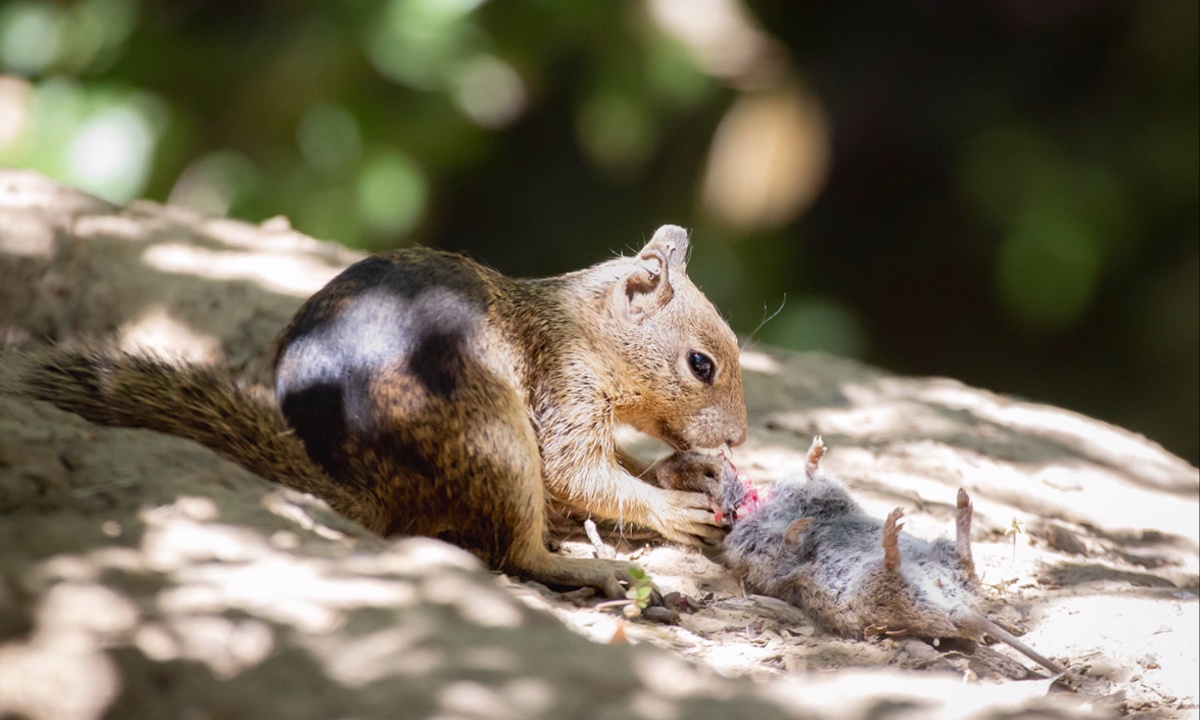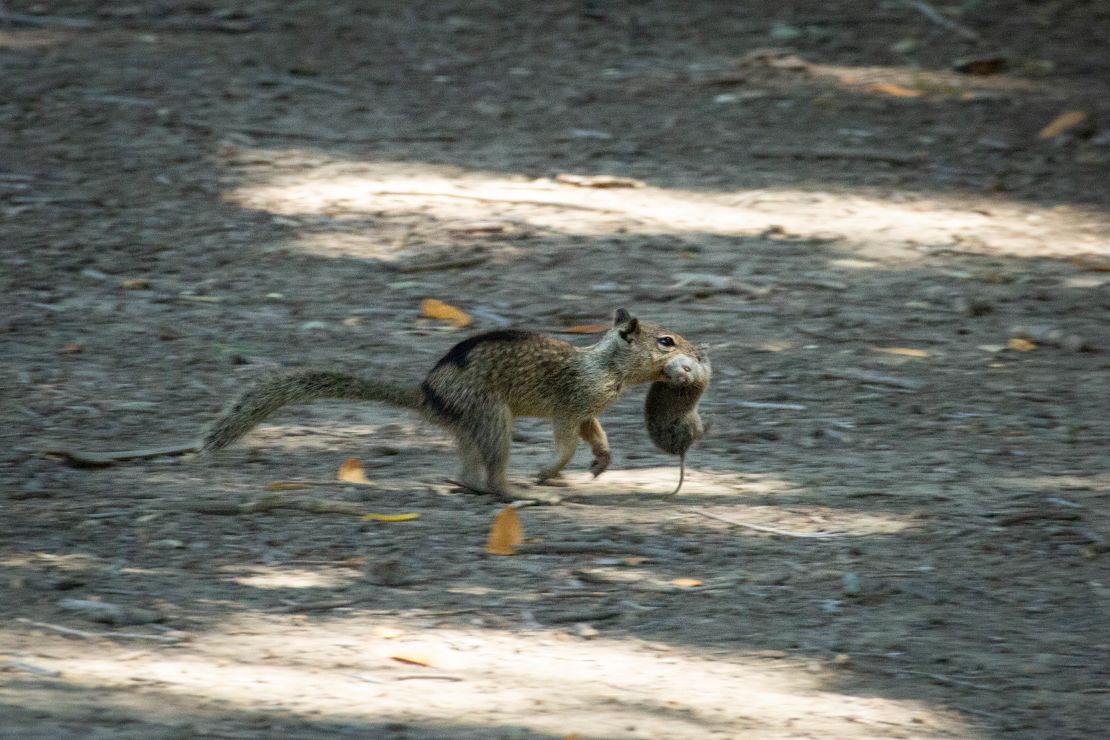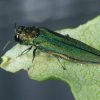A new study has uncovered previously unrecorded carnivorous behavior in California ground squirrels, traditionally known as herbivores or granivores. The findings, published in the Journal of Ethology, document the rodents actively hunting, killing, and consuming voles. This research, conducted as part of the Long-Term Behavioral Ecology of California Ground Squirrels Project in Briones Regional Park, highlights the squirrels’ ability to adapt their behavior to changes in their environment, including a significant increase in the local vole population.
The study observed a spike in vole numbers over the past decade in Northern California, prompting the squirrels to shift their dietary habits. Researchers collected detailed data on the squirrels’ physical characteristics and behavior during a study period from June 10 to July 30, using live traps and dye markers to track individual animals. Over 74 interactions between squirrels and voles were recorded, with 42% involving active predation. This unexpected shift underscores the squirrels’ dietary adaptability and resilience to environmental changes.

Lead study author Jennifer Smith emphasized the broader implications of the findings, noting how such behavioral flexibility enables species to thrive in changing ecosystems. She highlighted that understanding these shifts in food discovery and consumption could shed light on the adaptability of other species facing climate change, drought, and other environmental pressures. Squirrels’ ability to quickly exploit the local surge in vole abundance demonstrates their opportunistic nature and highlights their importance in balancing California’s ecosystems.
The study also revealed novel social dynamics between squirrels and voles. While many interactions were predatory, some were cooperative, involving foraging and playful behaviors. This mix of interactions, coupled with the squirrels’ rapid dietary shift, illustrates the complexity of their response to changing prey availability. Voles, now recognizing squirrels as predators, exhibit avoidance behaviors, further enriching the interplay between the species.
These findings provide a fresh perspective on the squirrels’ classification as opportunistic omnivores. The ability to hunt voles offers a quick protein source, demonstrating their dietary plasticity—a common phenomenon among animals. The research underscores the value of adaptability in ensuring survival amidst environmental challenges, offering critical insights into conservation strategies and the resilience of species in human-impacted ecosystems.

